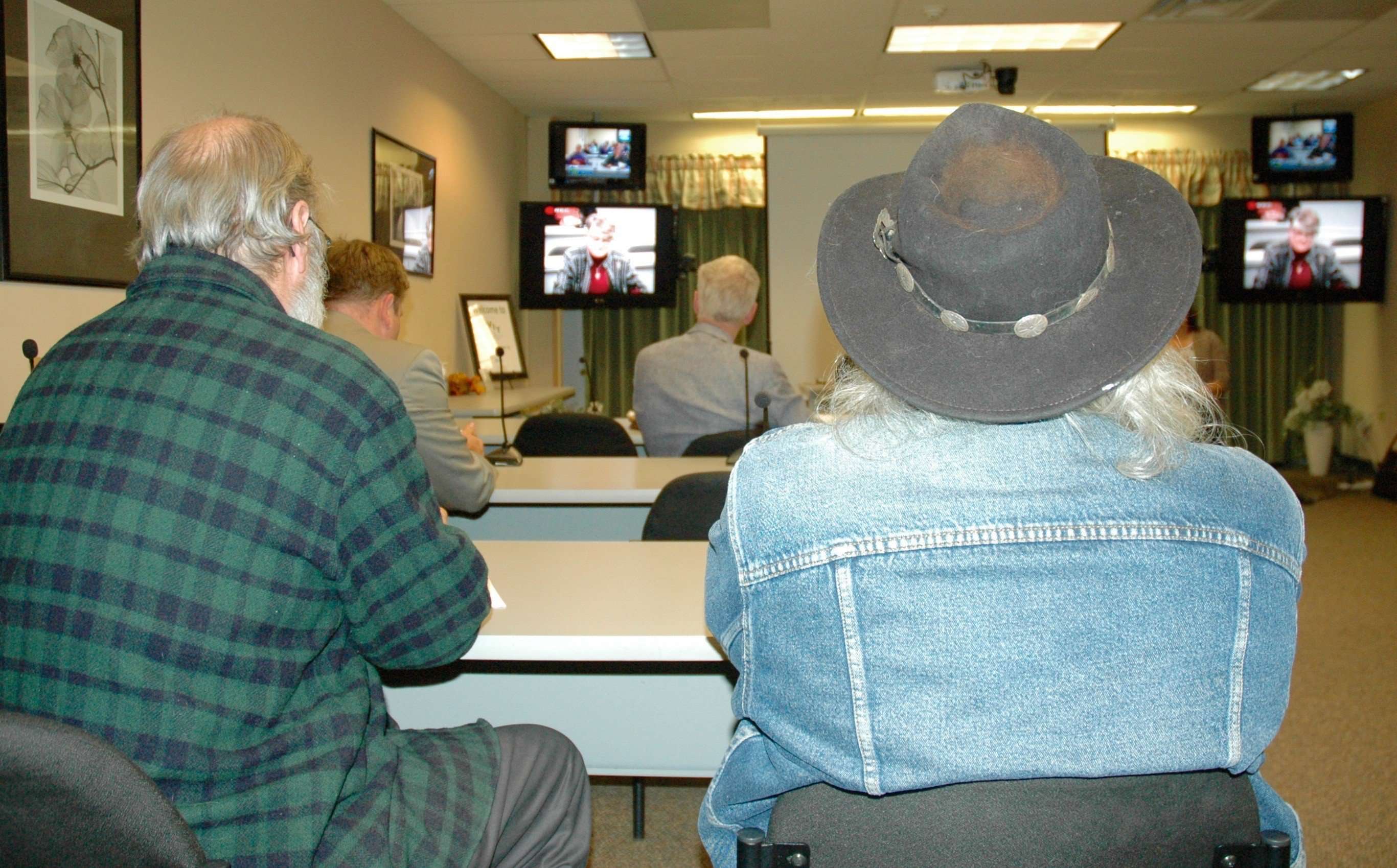Cable television giant Comcast is suing the Vermont Public Utility Commission over the panel’s decision to require the company to expand its network and step up support for community access TV if it wants to continue doing business in Vermont.
A key issue is the services Comcast must provide to local community access systems that carry municipal government and school board meetings and other local events. The 26 community access systems have been pushing — against resistance by Comcast — for high-definition video, greater ability to operate from remote locations, and inclusion in the interactive program guides that Comcast customers can use to decide what to watch.
The PUC — formerly known as the Public Service Board — in January issued a new 11-year permit for Comcast to operate in Vermont. In July the panel rejected the company’s request to drop some of the conditions attached to the permit.
In a lawsuit filed Monday in U.S. District Court in Burlington, Comcast argued that the PUC “exceeded its authority under federal and Vermont law” by imposing “numerous conditions on Comcast’s continued cable operations in the state that are arbitrary, unprecedented and will ultimately harm local cable subscribers by resulting in millions of dollars in increased cable costs.”
It said the commission “did so despite overwhelming record evidence that Vermont cable subscribers do not want to incur any additional costs or fees for the kinds of conditions imposed” in the commission’s January order.
Comcast’s lawyer, Christopher Roy of the Burlington-based firm Downs Rachlin Martin, said in the lawsuit that meeting the demands of the local access systems would add about $4 million in costs to the company’s operations in Vermont. He said the condition calling for Comcast to add 550 miles of line extensions came “without regard to any specific consumer demand or unserved area.”
Vermont Access Network, a consortium of the local access systems, did not take kindly to Comcast’s lawsuit.
“In its continued fight against free speech and open networks, Comcast has filed a federal suit against the Vermont Public Utility Commission … for seeking to modernize public access and extend cable service in Vermont,” the group said in a statement.
In interviews, Kevin Christopher, president of Vermont Access Network and executive director of Colchester-based Lake Champlain Access Television, and Rob Chapman, executive director of the ORCA Media system serving Montpelier and other central Vermont towns, said the changes they sought were overdue.
Chapman said, for example, that high-definition video equipment was now ubiquitous on the market. “You can’t get equipment that isn’t high-definition,” he said. While Comcast carries most programming in high definition, the company has declined to do so for the community access channels, Chapman said, “so we have to dumb it down to standard definition.”
Comcast’s commitment to public access systems — as strong or as weak as it is — comes against a backdrop of “a changing world, and it’s moving very quickly,” said James Porter, director of public advocacy with the state Public Service Department, which represents ratepayers before the utility commission.
Porter spoke of attending commission meetings “where somebody’s recording it with an iPhone and before you get in your car to go home, it’s up on the internet.”
With more customers shifting away from cable to internet-based video streaming services like Netflix and Hulu, the cable television industry — and the public access networks it spawned — could fade into history.
It could be that some new economic model might have to be developed if public access networks are to have a secure long-term future. Christopher put it this way: “If cable TV goes away, our existence is uncertain.”

slackjack2014 on February 13rd, 2018 at 03:11 UTC »
I hope Comcast loses this case in the worst way possible.
23Nolimit on February 12nd, 2018 at 23:47 UTC »
they accepted millions from the government in a agreement to expand their services several years ago now the gov is trying to force them to hold up their end of the deal and they want to sue because they dont like the terms? revoke their fucking permit. there are other companies that can fill the gap
WelcomeMachine on February 12nd, 2018 at 23:33 UTC »
I notice they went straight to the US court system. A better chance for not having to deal with any state's rights issue. If the decision goes their way, no state will be able to reign them in.